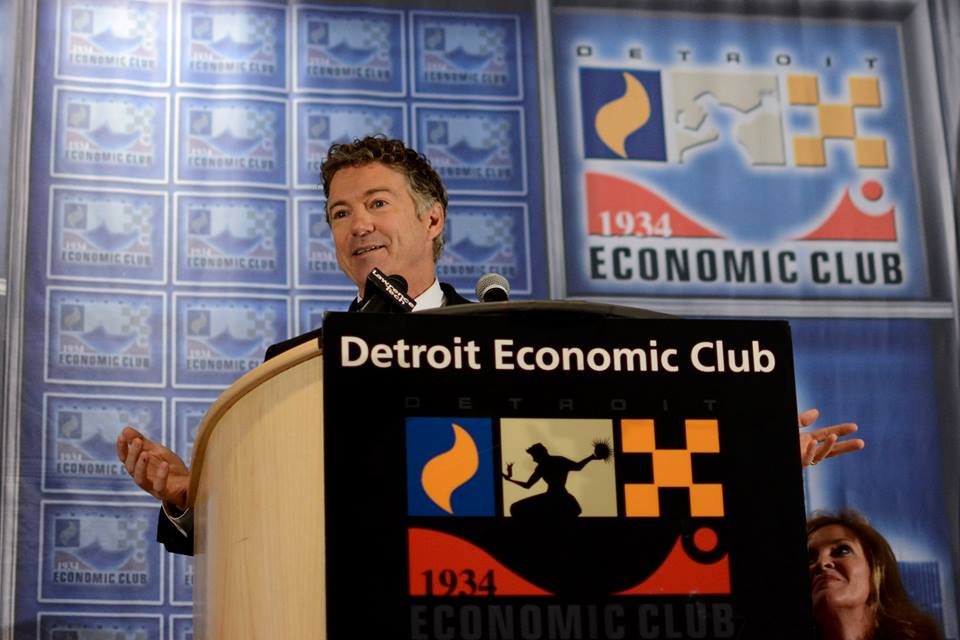 Sen. Rand Paul (R-Ky.) announced Friday that he will introduce a bill in Congress next week that will create “economic freedom zones” to reduce taxes in distressed areas, including Detroit, where Paul spoke at a Detroit Economic Club luncheon at Motor City Casino Hotel.
Sen. Rand Paul (R-Ky.) announced Friday that he will introduce a bill in Congress next week that will create “economic freedom zones” to reduce taxes in distressed areas, including Detroit, where Paul spoke at a Detroit Economic Club luncheon at Motor City Casino Hotel.
buy xifaxan online https://www.pharmalucence.com/wp-content/languages/new/generic/xifaxan.html no prescription
“Economic freedom zones will cut out the red tape that keeps new businesses from starting, and old businesses from thriving,” Paul said, adding that the zones will include areas across the U.S. where unemployment is 1.5 times higher than the national average.
“Economic freedom zones will — over a 10-year period if my bill were to pass — leave over $1.3 billion in Detroit.”
According to Paul, the freedom zones would lower personal and corporate income taxes to 5%, payroll tax to 2%, for both the employee and employers, and see a suspension of the capital gains tax.
Paul said these zones will work, and do not act as a traditional government stimulus because they “don’t ask Houston or Atlanta to bail out Detroit,” instead allowing Detroit to bail itself out by letting people and businesses keep more of the money they earn.
Paul said, “Detroit’s future will not come from Washington. To thrive, Detroit needs less government, and more freedom. Less red tape, less punitive taxes. More money left in Detroit. The answer to poverty and unemployment is not another government stimulus. It’s simply leaving more money in the hands of those who earn it.”
After discussing his new bill’s contents, the 50-year-old Kentucky senator switched gears and talked about what he called the “out-of-control war on drugs.”
Paul said, “Mandatory minimum sentences that force judges to give 10 and 20, sometimes 50-year sentences for drug offenses are crazy, and they’ve got to end. It is a human tragedy.”
The libertarian Republican said that nonviolent felons who serve prison time, such as many drug offenders, should be able to reintegrate into society by being able to get a job and vote. Paul said that the number one impediment to voting in the U.S. comes from the war on drugs.
He said, “I have a friend whose brother grew marijuana plants in college, and got convicted of a felony. He still can’t vote 30 years later. When he tries to get a job, he’s got to check off a box that says he’s a convicted felon.”
And, in the final of a handful of questions from the audience, Paul was asked whether or not he’d run for president in 2016.
“There are two votes in my family and they both come from my wife and they’re both no,” Rand responded.
Matt Harding
Matt Harding is a third-year journalism student at Wayne State University, a photographer, and a lifelong Detroiter. He has covered major political and sporting events and is the author & photographer of Belle Isle: Discovering Detroit’s Crown Jewel. Matt’s current project can be found on GrandCanyonJourney.com.

One Response to "Sen. Rand Paul touts plan to lower taxes in Detroit to generate new business"